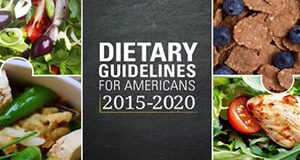Sodium is important for our body to maintain fluid balance, blood volume, and blood pressure; however, many people consume more dietary sodium (from salt) than needed. This 3-page publication explores the health effects of excessive sodium intake and ways to decrease intake of this mineral. Written by Asmaa Fatani, Nancy J. Gal, and Wendy J. Dahl and published by the UF/IFAS Department of Food Science and Human Nutrition, August 2018.
http://edis.ifas.ufl.edu/fs312
Tag: dietary guidelines
Dietary Guidelines for Americans 2015–2020: A Summary
About half of all adult Americans have at least one chronic disease that could be prevented. Many of these preventable chronic diseases are related to poor eating and physical activity habits. The good news is that the risk of chronic diseases, such as heart disease, high blood pressure, and type 2 diabetes, can be reduced with the help of the 2015 Dietary Guidelines for Americans, which is described in this five-page fact sheet. Written by Kelly Johnston and Karla P. Shelnutt and published by the Food Science and Human Nutrition Department.
http://edis.ifas.ufl.edu/fs298
Nutrition for Health and Fitness: Fat in Your Diet
We frequently hear about the epidemic of obesity. We also hear a variety of recommendations for how much and what type of fat we should have in our diets. With new research being published all the time, it can get confusing for consumers. This 8-page fact sheet is a major revision that provides tips to help individuals meet dietary guidelines and reduce health risks, as well as a few tasty recipes to try. Written by Linda B. Bobroff, and published by the UF Department of Family, Youth and Community Sciences, revised March 2017.
http://edis.ifas.ufl.edu/he695


